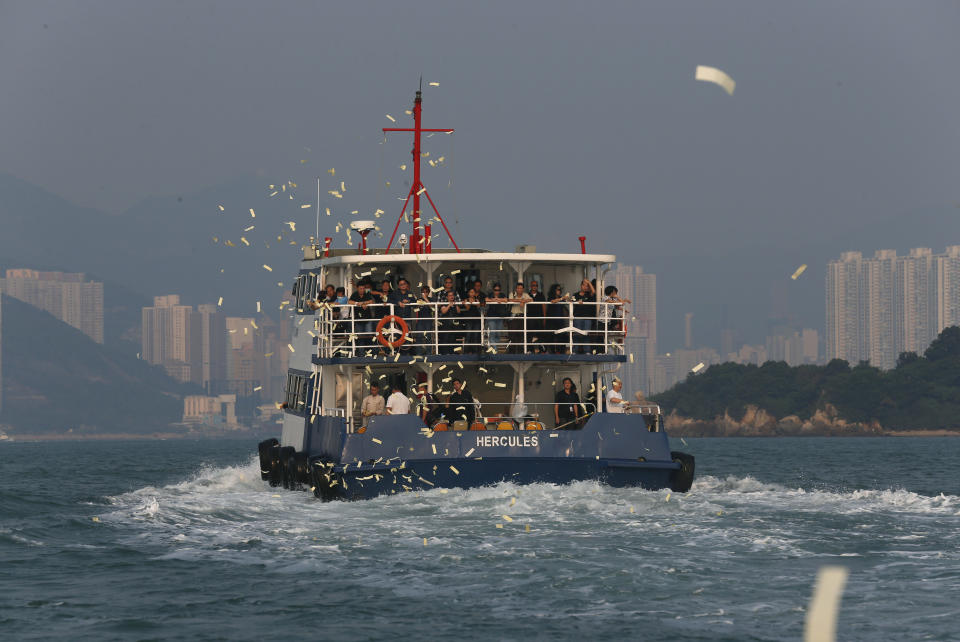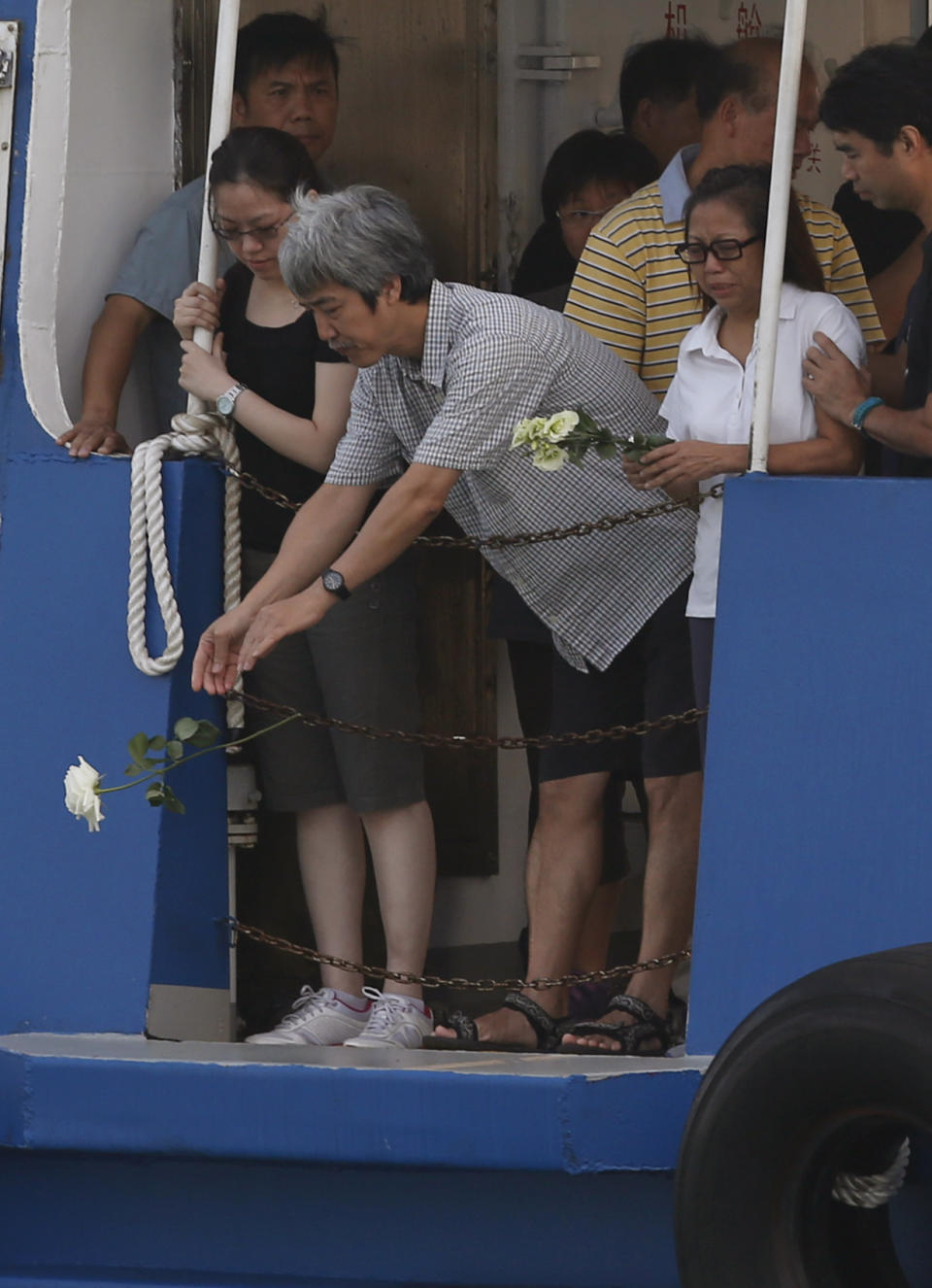Beijing rep at HK tragedy raises unease over China
HONG KONG (AP) — A show of concern by Beijing over a boat collision that killed dozens of people in Hong Kong this week has backfired, further damaging the Communist government's image in the former British colony.
Hong Kong Chief Executive Leung Chun-ying is under fire for allowing a mainland Chinese official to play a high-profile role at a news briefing just hours after Monday night's accident, which killed 38 people and injured more than 100.
The tragedy occurred when a boat taking 120 staff and family members of a power company to watch a fireworks display collided with a commuter ferry and quickly sank.
People across the semiautonomous southern Chinese city dressed in black and fell silent for three minutes at noon Thursday as they observed the first of three days of official mourning. Friends and relatives of the dead sailed to the scene off Hong Kong island's southwestern coast to take part in a traditional Chinese mourning ritual by tossing spirit money in honor of the victims.
Hong Kong returned to Beijing's control 15 years ago but retains a high degree of autonomy and enjoys Western-style civil liberties not seen on the mainland. The appearance by Li Gang, deputy director of Beijing's Central Liaison Office in Hong Kong, is the latest in a string of incidents adding to unease over the mainland's growing influence over the city.
Hong Kong's leader was accompanied by Li on a visit to some of the injured at a hospital. After Leung made some remarks to reporters, Li spoke for about two minutes, offering condolences and discussing what neighboring Guangdong province could do to help.
It's unusual for Hong Kong officials to let their counterparts from mainland China play such a high-profile role in events they're not involved in. Li does not have any role in the Hong Kong government and under the city's mini-constitution, Beijing is only responsible for defense and foreign affairs.
In an editorial Thursday, Hong Kong's Apple Daily newspaper slammed Leung for standing aside and letting Li hog the spotlight, saying that his "cowardice" raised eyebrows and was "hard to believe."
"Leung Chun-ying should not have allowed Li Gang to interfere in such a high-profile way," the newspaper said. "In this way, many residents feel deeply that Li Gang and the Central Liaison office are the real captains of the ship."
Leung, who took office in July amid suspicions that he was a secret Communist Party member, denied Li had taken control. He told the South China Morning Post that he was already at the hospital when Li arrived.
In China, the authoritarian government often seems remote but tries to appear responsive in times of disaster by sending high-level officials to the scene.
"Many people here resent the fact that he seems to be arrogating to himself powers and authorities which are not given to that office," said Willy Lam, a veteran China analyst at Chinese University of Hong Kong.
He added that because tensions between Hong Kong and the mainland have been so strained lately, "even this supposedly innocuous expression of goodwill is being interpreted as a kind of a backhanded attempt to interfere in Hong Kong affairs."
Beijing's offer of four large barges to help with the salvage operation also backfired. News reports said the barges could not be used and were sent back.
The incident adds to growing mistrust of Beijing by Hong Kongers. In August, the government was forced to back down from plans to make students take Chinese patriotism classes after tens of thousands protested because they feared pro-Beijing "brainwashing."
Tens of thousands also took to the streets in July to vent their anger over Leung's installation as leader of Hong Kong after he was hand-picked by a committee of Hong Kong's mainly pro-Beijing elite. Hong Kong residents have also been angered by an influx of wealthy mainland Chinese, whom they blame for driving up prices of everything from baby formula to luxury apartments through their voracious spending.
Recent surveys by two universities showed that Leung's popularity has slid to a low. It all adds up to further headaches for Leung, because it makes it harder for him to find support for promised reforms aimed at lowering the city's widening inequality, such as providing more affordable housing.
___
Follow Kelvin Chan on Twitter at twitter.com/chanman





